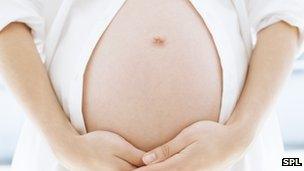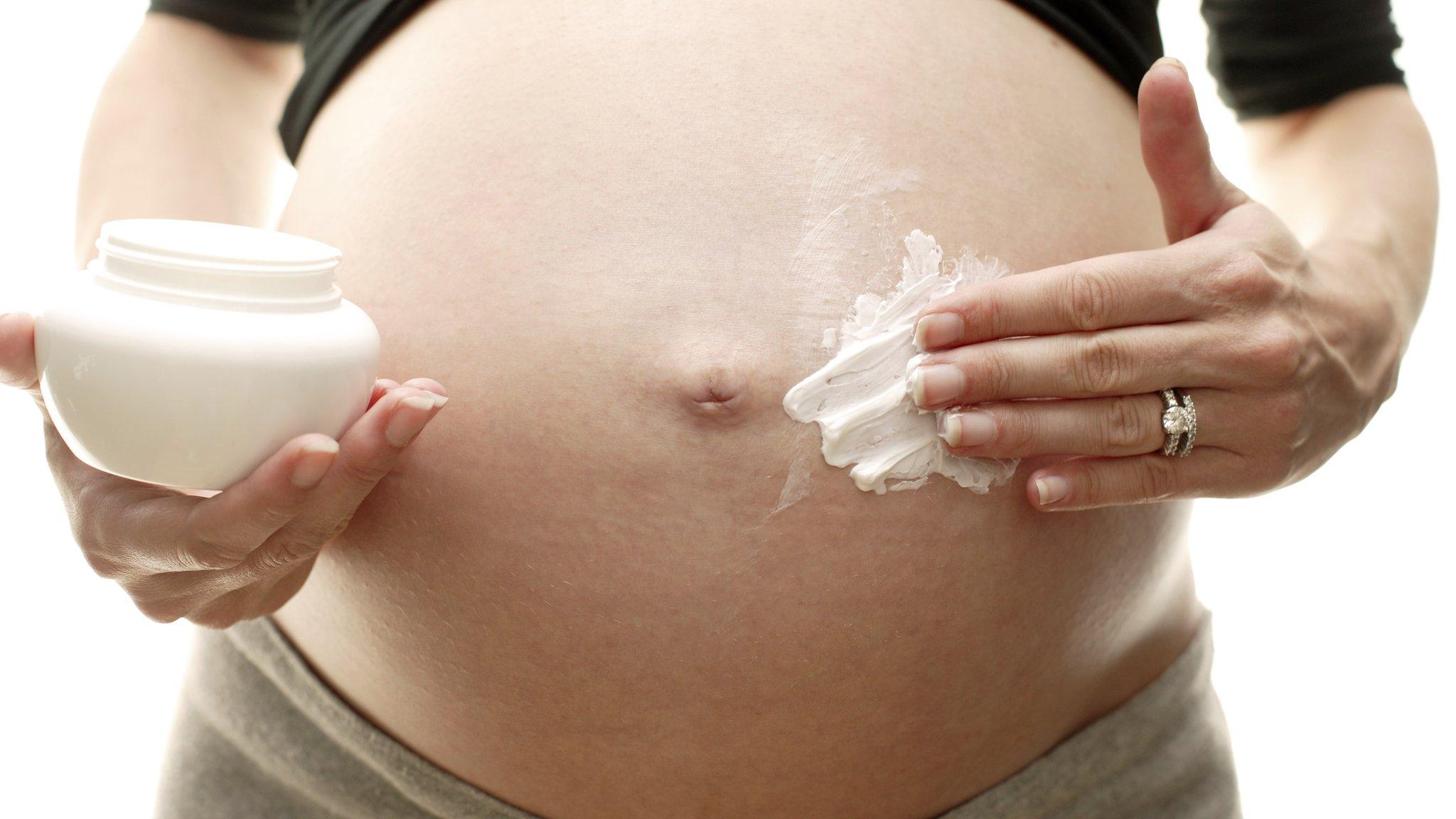Chemicals: a worry for pregnant women?
- Published
- comments

Pregnant women already face an array of health messages
There are many things that pregnant women should definitely avoid. Chief among these are cigarettes.
There is overwhelming evidence that smoking is harmful, external to the developing baby, can lead to premature birth and low birth weight, and increase the risk of cot death.
There is also irrefutable evidence that alcohol can be harmful - the official advice , externalis to avoid it completely, although some research says it is not damaging in small amounts.
Add to that some soft cheeses, raw eggs, some oily fish, raw shellfish, liver, high levels of caffeine, all of which have been shown to present real health dangers.
Now the Royal College of Obstetricians and Gynaecologists, external has issued a paper - looking at the "potential but unproven" risks from exposure to environmental chemicals in pregnancy. It says the purpose is to raise awareness and not to scare women. But the list of things they suggest avoiding is so extensive it is hard to see how it won't cause alarm.
These include everything from shower gel to cosmetics, food in tins or wrapped in plastic, new cars and new furniture, and non-stick frying pans.
The RCOG says it wants to arm women with the facts to enable them to make an informed decision.
But its report says "it is impossible to assess the risk, if any of such exposures" to the cocktail of chemicals we all encounter.
Safety first
Furthermore the authors says "it is unlikely that any of these exposures are truly harmful for most babies".
But it then goes on to specifically recommend women adopt a "safety first" approach and assume there is a risk "even when it may be minimal or eventually proven to be unfounded."
Among the chemicals listed is bisphenol A (BPA), found in drinks and food cans, and phthalates, found in everything from plastics, carpets, cosmetics, to cars.
The lead author, Dr Michelle Bellingham told me that the paper was aimed at health professionals advising women at ante-natal classes. "We are trying to empower women, not scare them. There is a void at the moment in terms of information about chemicals."
But Alastair Hay, Prof of Environmental Toxicology at the University of Leeds said "This report is really unhelpful and does not provide mothers-to-be with useful advice. What I would have preferred to see from the RCOG is good clear advice, such as don't smoke in pregnancy and restrict caffeine intake."
Prof David Spiegelhalter, Winton Professor for the Public Understanding of Risk at the University of Cambridge, said: "These precautionary 'better safe than sorry' recommendations are not necessarily cost-free. They may feed anxiety, and detract attention from the known harms of bad diet, smoking and excessive alcohol. And it is unclear how any benefits can ever be assessed."
The precautionary principle is well-established in medicine. In 2011 the EU banned BPA in baby bottles., external But the Food Standards Agency , externalhas this advice on BPA: Independent studies have shown that, even when consumed at high levels, BPA is rapidly absorbed, detoxified, and eliminated from humans and, therefore, is not a health concern.
We all encounter health hazards on a daily basis and must take personal responsibility for our health. There are important health messages about how to stay healthy in pregnancy. But perhaps the RCOG risks undermining those by issuing this long list of products which women might choose to avoid in order to reduce potential yet unproven risks.
- Published5 June 2013
